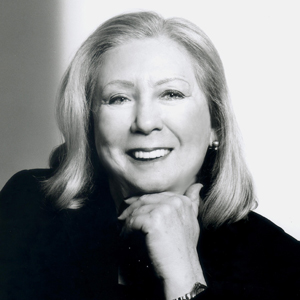 Open Road has a kind of "layer cake" inspiration, as CEO Jane Friedman put it, and the main components are:
Open Road has a kind of "layer cake" inspiration, as CEO Jane Friedman put it, and the main components are:
• Author brands, which consists of the works of established, classic authors who have retained e-book rights, including William Styron, James Jones, Carl Hiaasen, Rebecca West and Jack Higgins. These have "gotten the most attention," Friedman said. Open Road aims to publish an author's entire catalogue, or as much of it as possible, although sometimes it starts with just one title. The company has about 80 such brands, which continue to grow.
Recent additions are eight titles by the late Leon Uris, including Exodus (with three more titles next April, completing his oeuvre), and three titles by Alice Walker, including The Color Purple (with eight more titles appearing on November 22). As with other Open Road titles, these e-books include illustrated biographies that feature many previously unpublished photographs and documents from the authors, as well as video material. In Walker's case, there is video of her discussing her books and her life; in Uris's case, video includes commentary from two of his children, Karen and Mike Uris, about their father, his motivations, his work habits and more.
• Publishing Partnerships. Open Road forms full partnerships with independent publishers, helping them enter the digital world. As part of these partnerships, Open Road creates, distributes and markets e-books. Publishers pick among the range of offerings and sometimes use all of them. The publishers are an eclectic bunch and include such companies as Kensington, Abrams, Akashic for Go the F**k to Sleep, Delphinium, Thomas Nelson, Pegasus Books and Cosmo for its first fiction e-book.
• E-riginals, e-books that Open Road is publishing for the first time. By volume, e-riginals are a small part of what the company does but they are important for the house and its identity. "We are creating new authors, and they're an important part of the new kind of publishing--publishing for 21st century--that we're doing," said Brendan Cahill, v-p and publisher. (Cahill was formerly an editor at Running Press, Grove/Atlantic and Penguin, where he was a founding editor of Gotham Books.) Open Road published three e-riginals last year, 12 this year, and plans to publish between 15 and 20 next year.
An upcoming e-riginal is One More River by Mary Glickman, appearing on November 2. Open Road also published the author's first novel, Home in the Morning, as an e-riginal last year. The book shot up the charts, hitting #30 on Amazon's bestseller list, and Open Road is currently adapting the novel into a movie produced by co-founder Jeffrey Sharp, with Jim Kohlberg writing and directing.
• The TV and film division. Several projects are in development, including a feature film based on Styron's Lie Down in Darkness and the TV series Cocoa Beach, based on the life of Open Road author Jay Barbree, who wrote Moon Shot: The Inside Story of America's Apollo Moon Landing with Alan Shepard and Deke Slayton and Live from Cape Canaveral.
 Another innovation at Open Road is its business model. The company doesn't offer advances but shares e-book profits evenly with authors and pays them on a quarterly basis. The model creates "a richer, faster upside," Cahill said, and forges "a different kind of relationship and investment that optimizes the outcome. Each sale is worth more to the author and us." Unlike some more traditional deals, "We don't forget about the books or give up after selling a certain amount." Both new and established authors have embraced the model, he said.
Another innovation at Open Road is its business model. The company doesn't offer advances but shares e-book profits evenly with authors and pays them on a quarterly basis. The model creates "a richer, faster upside," Cahill said, and forges "a different kind of relationship and investment that optimizes the outcome. Each sale is worth more to the author and us." Unlike some more traditional deals, "We don't forget about the books or give up after selling a certain amount." Both new and established authors have embraced the model, he said.
Open Road sells its e-books through all the major e-tailers, including Amazon, Apple, Barnes & Noble, Google, Kobo, Sony and Overdrive. For print copies, the company uses Ingram's Lightning Source and the Espresso Book Machine.










 Another innovation at Open Road is its business model. The company doesn't offer advances but shares e-book profits evenly with authors and pays them on a quarterly basis. The model creates "a richer, faster upside," Cahill said, and forges "a different kind of relationship and investment that optimizes the outcome. Each sale is worth more to the author and us." Unlike some more traditional deals, "We don't forget about the books or give up after selling a certain amount." Both new and established authors have embraced the model, he said.
Another innovation at Open Road is its business model. The company doesn't offer advances but shares e-book profits evenly with authors and pays them on a quarterly basis. The model creates "a richer, faster upside," Cahill said, and forges "a different kind of relationship and investment that optimizes the outcome. Each sale is worth more to the author and us." Unlike some more traditional deals, "We don't forget about the books or give up after selling a certain amount." Both new and established authors have embraced the model, he said.
 A major impetus for the creation of Open Road in 2009 stemmed from an experience Jane Friedman had long ago when she was visiting one of her children and went to a local bookstore to buy a copy of Sophie's Choice as a gift. But the William Styron classic wasn't in stock. "I had been the publisher of Vintage, which has a strong backlist, and was aware of what was happening," she recalled. "Shelves were shrinking, and front list was taking more space." An obvious solution lay in digital publishing, something she encountered with the short-lived Rocket eBookMan reader that was launched in 1999. "I loved the idea of having a device with multiple books on it that you could travel with," she said. "I felt in my bones that we were shifting in another direction."
A major impetus for the creation of Open Road in 2009 stemmed from an experience Jane Friedman had long ago when she was visiting one of her children and went to a local bookstore to buy a copy of Sophie's Choice as a gift. But the William Styron classic wasn't in stock. "I had been the publisher of Vintage, which has a strong backlist, and was aware of what was happening," she recalled. "Shelves were shrinking, and front list was taking more space." An obvious solution lay in digital publishing, something she encountered with the short-lived Rocket eBookMan reader that was launched in 1999. "I loved the idea of having a device with multiple books on it that you could travel with," she said. "I felt in my bones that we were shifting in another direction."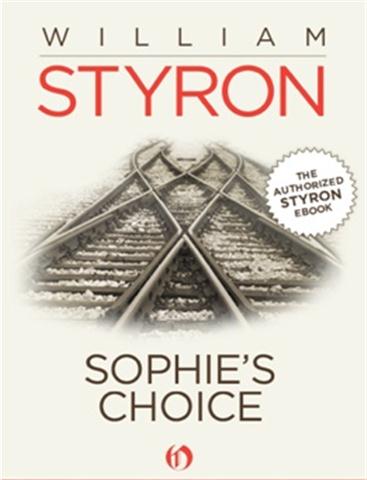 After leaving HarperCollins in 2008 where she had been CEO for 11 years, she and business partner Jeffrey Sharp discussed how to "embrace the digital landscape with content for all screens, movies, tablets, computers, smartphones." Coincidentally Sharp, a film producer, had acquired film rights to William Styron's Lie Down in Darkness, which Friedman had published in paperback. Styron had "a wonderful backlist," Friedman said. "We could see the potential for his material, most significantly for e-readers." Many significant literary agents "embraced the idea early on," and Open Road's catalogue has continued to grow.
After leaving HarperCollins in 2008 where she had been CEO for 11 years, she and business partner Jeffrey Sharp discussed how to "embrace the digital landscape with content for all screens, movies, tablets, computers, smartphones." Coincidentally Sharp, a film producer, had acquired film rights to William Styron's Lie Down in Darkness, which Friedman had published in paperback. Styron had "a wonderful backlist," Friedman said. "We could see the potential for his material, most significantly for e-readers." Many significant literary agents "embraced the idea early on," and Open Road's catalogue has continued to grow.
 The production staff have backgrounds in filmmaking and documentaries.
The production staff have backgrounds in filmmaking and documentaries.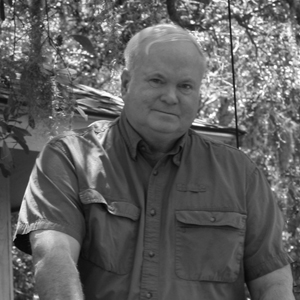 When a crew went to talk with Pat Conroy, "he knew in 10 minutes that this was different," Parker Bowles said. "Everything in the room changed." The Conroy interview was supposed to last four hours, "but we ended up staying two days," Parker Bowles said. "And it was hard to leave him on the third day."
When a crew went to talk with Pat Conroy, "he knew in 10 minutes that this was different," Parker Bowles said. "Everything in the room changed." The Conroy interview was supposed to last four hours, "but we ended up staying two days," Parker Bowles said. "And it was hard to leave him on the third day."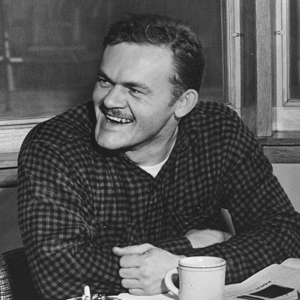 In the case of deceased authors, the crews interview family members and "people who remain passionate about them," as Parker Bowles put it. For the late
In the case of deceased authors, the crews interview family members and "people who remain passionate about them," as Parker Bowles put it. For the late  Open Road's proprietary Marketing Platform creates content for blogs, social networks, portals, news organizations and more. It's a continual, 24/7 effort on behalf of the company's authors and books--Open Road calls it a "360-degree cycle"--and is "dramatically different from traditional book publicity," said Rachel Chou, chief marketing officer. (She is the former v-p, online product development, at HarperCollins.) With the amount of Open Road's titles and videos, there is a lot of material to work with.
Open Road's proprietary Marketing Platform creates content for blogs, social networks, portals, news organizations and more. It's a continual, 24/7 effort on behalf of the company's authors and books--Open Road calls it a "360-degree cycle"--and is "dramatically different from traditional book publicity," said Rachel Chou, chief marketing officer. (She is the former v-p, online product development, at HarperCollins.) With the amount of Open Road's titles and videos, there is a lot of material to work with.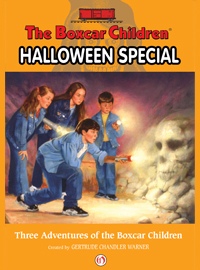 In social media, one example of how the company has taken given new life to classic books involves Gertrude C. Warner's 128 Boxcar Children Mystery titles. "A half dozen are about zombies and spooky house and the like," Chou said, so as Halloween approaches, Open Road is doing "targeted ads and tweets of-the-moment marketing for them."
In social media, one example of how the company has taken given new life to classic books involves Gertrude C. Warner's 128 Boxcar Children Mystery titles. "A half dozen are about zombies and spooky house and the like," Chou said, so as Halloween approaches, Open Road is doing "targeted ads and tweets of-the-moment marketing for them."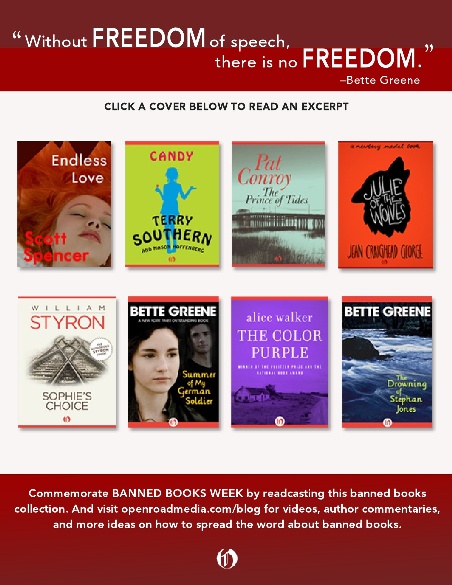 Open Road also created
Open Road also created 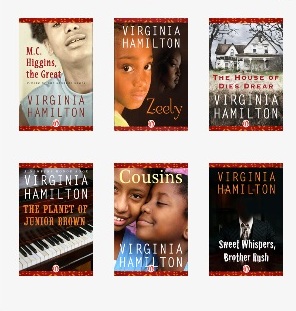 Marcus plans in part to do in the children's area what was done in the adult area: bring back classic and award-winning titles in e-book form. "It's a great opportunity for librarians and teachers, parents and children," she said. Among the titles already out: Mr. Popper's Penguins, Virginia Hamilton's work, including M.C. Higgins the Great, and some of Jean Craighead George's and Bette Greene's work. With Kids Can Press, Open Road has also brought to e-book the Franklin series by Paulette Bourgeois, including Franklin's Halloween and Franklin's Christmas, and with Albert Whitman, the Boxcar Children series.
Marcus plans in part to do in the children's area what was done in the adult area: bring back classic and award-winning titles in e-book form. "It's a great opportunity for librarians and teachers, parents and children," she said. Among the titles already out: Mr. Popper's Penguins, Virginia Hamilton's work, including M.C. Higgins the Great, and some of Jean Craighead George's and Bette Greene's work. With Kids Can Press, Open Road has also brought to e-book the Franklin series by Paulette Bourgeois, including Franklin's Halloween and Franklin's Christmas, and with Albert Whitman, the Boxcar Children series.